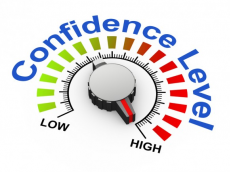
The term self-efficacy refers to the psychological concept of one’s belief in their own abilities to succeed at a task. Self-efficacy is an extremely important and interesting concept for psychologists to consider, since it has been shown to be a strong influence on human behaviour and decision making. There are many ways in which it can have an effect, which will be outlined in detail below.
Firstly, individuals who believe that they are not good at something may display particular traits because of this, supporting a situationist view of personality. The term is a frequently cited piece of evidence used to support the view, since some psychologists, as discussed in previous articles, believe in over-arching traits that are consistent across many situations, while some, on the other hand suggest that these differences in behaviour can be explained by the added personality factor of self-efficacy, which is dependent on certain situations for each person. Everyone will feel more competent at certain tasks than others and so will behave differently in these tasks because of this. They may try harder on tasks that they feel they can do well at, or be less worried by these tasks. These individual ‘behavioural signatures’ may be related to the broader overarching trait values, since conscientious people may try harder when their self-efficacy is low in order to improve, while those low in conscientiousness may try harder specifically when their self-efficacy is high, since they will enjoy their success when they know that they are naturally good at something.
Self-efficacy can be related to real world problems as well, since those who believe that they will be useful and competent in an emergency will be much more likely to act when one does arise. Cowpe showed in a US study that in those areas where adverts instructing how to act during chip-pan fire were shown, call outs of the emergency services for chip-pan fires were reduced, suggesting that by increasing individual’s self-efficacy in dealing with chip-pan accidents, they are more likely to deal with them quickly, rather than leaving them to do more damage out of fear. This shows that increasing self-efficacy may be very useful in improving people’s responses, since before these results were shown, they had tried using many other techniques, including deterring the use of chip-fat fryers and trying to get people to be more cautious when using them, but this had not worked. But, by telling people how to react in an emergency if one did occur and making them feel like they could sort it out simply and easily, people did not allow small problems to escalate into bigger ones.
Self-efficacy is an important part of social cognitive theory, which was developed by Bandura. He suggests that people have a self-system that makes up how we view situations and how we behave, and this is partly due to self-efficacy. When people are generally high in self-efficacy, they will strive to master problems rather than being scared to face them. They will also become more interested, more committed and quicker to move on from setbacks or disappointments. Self-efficacy at tasks should be encouraged, as it can actually lead to better results. Knowing this may help us make changes in our real world, such as in schools to improve results. By moving on from setbacks more quickly and believing in yourself more rather than putting yourself down, you may in fact even be able to improve your own ability without realising it.
Image from: http://www.skipprichard.com/wp-content/uploads/2013/12/bigstock-D-Knob-Confidence-Level-46141444-583x437.jpg

0 Comment:
Be the first one to comment on this article.